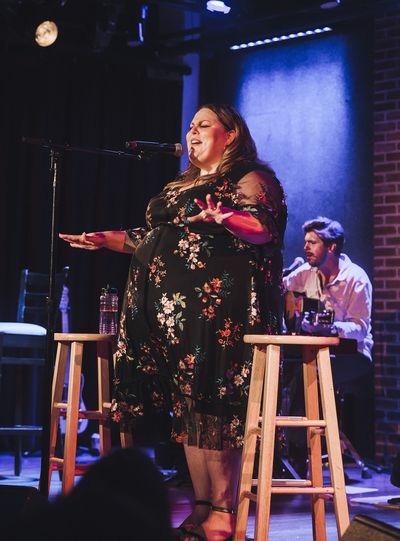The Television Academy music branch is leading the way in the diversity awards. Forty-six percent of all this year’s nominees in the music categories are women, people of color, or both.
Nine of the 41 nominees, or 22%, are women; 13 of the 41, nearly a third, are people of color. While the female contingent is a slight decline from last year (27% were female), the POC percentage is rising (from one-fifth of last year’s nominees).
Women songwriters are nominated in five of the seven music categories; people of color in six of the seven. It’s a near-complete repudiation of the white male power structure enacted for decades, which kept both women and the POC out of contention for top shows.
Music Governors Jeff Russo and Sherri Chung issued this statement to Variety: “We are very excited about the representation on this year’s list of nominees. Not only is it a great testament to the importance of diversity and inclusion within our music community, it is also an example of how our industry has taken steps to seek out new and unheard of voices to meet the demand for greater content creation.”
Siddhartha Khosla became the first South Asian composer – and indeed a rare instance of any composer – to be nominated in three categories: score for a series and main title theme (both for “Only Murders In the Building” from Hulu) and music (NBC’s “This Is Us”).
Terence Blanchard, one of the most prominent black American songwriters, received his first Emmy nomination for the Apple+ documentary “They Call Me Magic”. Egyptian composer Hesham Nazih was recognized for the music of the Marvel series “Moon Knight”, and British-Indian composer Nainita Desai won a nomination for the Netflix documentary “14 Peaks: Nothing Is Impossible”.
Chilean Cristobal Tapia de Veer received two nominations (limited series score and main title theme) for “The White Lotus”, and South Korean composer Jung Jae-il was cited for his theme for “Squid Game” – not to mention say none of the twin song nominations for Zendaya and Labrinth for “Euphoria”, Rickey Minor’s two nominations for musical direction on “The Kennedy Center Honors” and Adam Blackstone’s third nomination for musical direction for a Super Bowl halftime show .
Natalie Holt won two nominations for “Loki” (series score, main title theme), Jessica Jones one for “The Tindler Swindler”, and no fewer than four women were among the seven nominees for music supervision (Jen Malone for “Euphoria ,” Robin Urdang for “Marvelous Mrs. Maisel”, Nora Felder for “Strange Things”, Janet Lopez for “The White Lotus”).
“The industry as a whole is making a concerted effort to turn the tide,” says Russo (“Star Trek: Discovery”). “There are simply more women, more people of color, doing these shows, and they’re doing a wonderful job. The Academy recognizes great work; That’s what we do.”
Surprisingly, Russo says he expected this. “Not as a governor, but as a songwriter and voter, I saw what was happening. We are very happy.”
Chung (“Kung Fu”), the Academy’s first female music governor, adds, “For someone like me who is a woman and a person of color, it is surprising to see the change in representation. The industry has opened up to voices less heard.
“Having different stories – and diversity of directors, writers, producers and showrunners – allows new voices to be heard on the music side. For me, this is an example of need awareness and creative need as well. It’s a fantastic example of what our industry at large is doing – our conscience, our willingness and desire to celebrate good work, no matter who is creating it.”
Raashi Kulkarni, Executive Director, Allliance for Women Film Composers, adds: “This is an exciting time during which previously underrepresented artists from different backgrounds are starting to be recognized in our industry. While there is still work to be done, traction is being made to showcase and celebrate diverse talents and perspectives.”



